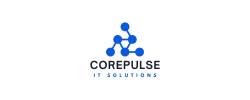Introduction
Antivirus software, security software, and firewalls are imperative — but they’re not enough. The real first line of defense within your company? Your staff.
A human firewall in cybersecurity is the collective awareness, attitude, and vigilance of your employees in protecting your company’s networks and data. For Australian small to mid-size businesses (SMBs), making your people empowered with the right knowledge and attitude is one of the cheapest ways of protection from cyber attacks.
This article speaks about why your people are your first line of cyber defense, and how to turn your team into a strong human firewall.
What Is a Human Firewall?
A human firewall is a team of workers who have been trained and alert enough to recognize, steer clear of, and alert cyber attacks. They don’t merely rely on IT — they own cybersecurity themselves in their everyday lives.
Key attributes of a human firewall:
- Sensitive to common threats like phishing and malware
- Maintain good password and data hygiene
- Follow secure protocols, especially when handling sensitive data
- Immediately report suspicious activity

Why Human Firewalls are Crucial to SMBs
Cybercriminals increasingly target Australian small and mid-sized businesses — sometimes because they lack the same resources as larger organizations. Technical controls can’t prevent all attacks, especially threats like:
- Social engineering
- Business email compromise
- Insider threats
- Human error (accidental data disclosure, password abuse)
Educating your staff to be part of your security framework substantially reduces your exposure to these vulnerabilities.

Famous Weak Points Which Employees Can Fix
Even limited cybersecurity expertise among your workforce can repel common attacks:
1. Phishing Emails
Employees acquire the skill to recognize dubious messages and hyperlinks.
2. Weak Passwords
Strong, unique passwords become second nature.
3. Risky Internet Usage
Staff avoid risky downloads, copycat sites, and insecure Wi-Fi.
4. Mishandling Data
Staff are highly trained in data protection law and best practice.

How to Build a Human Firewall in Your Business
You don’t need a big budget to start building your team’s cyber awareness. Here’s how to get started:
1. Deliver Ongoing Cybersecurity Awareness Training
Regular training (every month or quarter) keeps security top of mind. Cover subjects like phishing, password hygiene, and reporting practices.
2. Simulate Attacks
Perform internal phishing simulations or “what would you do?” exercises to identify zones of knowledge deficit and reinforce learning.
3. Empower Reporting
Create a culture in which employees are free to report suspicious behavior without retribution. Make it clear that no question is a dumb one on security.
4. Lead from the Top
It is up to business leaders and managers to set the tone. Make it clear that cybersecurity is a shared responsibility, not an IT issue.

Human Firewall = Cybersecurity Culture
Building a human firewall is more than training — it’s building a cybersecurity-first culture where every employee plays a part in protecting your business. From the front-desk receptionist to the remote worker, everyone must understand that their actions affect corporate security.
Want to Strengthen Your Human Firewall?
We help Australian SMBs train and empower their staff to be successful human firewalls via tailored staff awareness programs, simulated phishing, and risk monitoring.
Visit our IT Security Services page to learn more, or contact us to start building a stronger, safer business today.


